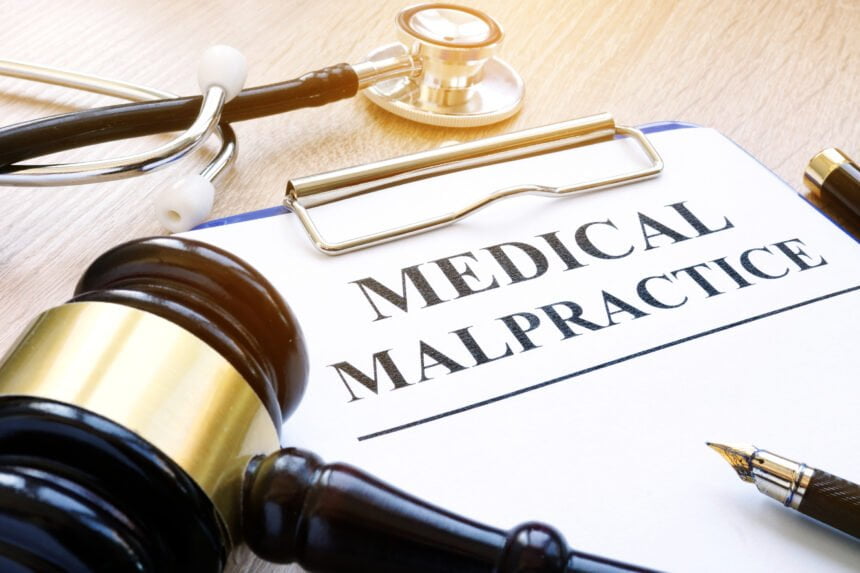Medical malpractice can lead to costly medical bills. Medical malpractice occurs when a healthcare provider fails to meet the standard of care expected in their field, resulting in harm to the patient. This can lead to various consequences, including prolonged medical treatment, additional surgeries or procedures to correct errors, rehabilitation costs, loss of income due to inability to work, and emotional distress for the patient and their family.
- Examples of Medical Malpractice That Causes Wrongful Death
- Surgical Errors
- Anesthesia Errors
- Failure to Diagnose or Misdiagnosis
- Birth Injuries
- Medication Errors
- Failure to Treat
- Delayed Treatment
- Ignoring or Misinterpreting Laboratory Results
- Lack of Informed Consent
- Financial Compensation
- Punitive Damages
- Recovering Damages
The financial implications of medical malpractice can be significant. Patients may face substantial medical bills related to correcting the harm caused by the malpractice, as well as ongoing expenses for future care and treatment. In some cases, patients may also pursue legal action to seek compensation for their damages, which can include medical expenses, lost wages, pain and suffering, and other economic and non-economic losses.
Overall, medical malpractice can indeed result in costly medical bills for patients, and it’s important for individuals to be aware of their rights and options if they believe they have been the victim of medical negligence. The good news is that a medical malpractice lawsuit may help you cover your medical bills, just like a personal injury lawsuit could.
The aftermath of losing a loved one due to medical malpractice is a trying time for any family. While no amount of money can compensate for the loss of life, the law provides a pathway for survivors to recover damages in a wrongful death case. If you find yourself in this situation, understanding what compensation may be available is crucial.
Examples of Medical Malpractice That Causes Wrongful Death
Medical malpractice occurs when a healthcare provider fails to give adequate or appropriate treatment, makes an incorrect treatment, or omits taking an action, which causes harm to the patient. When such malpractice leads to the death of the patient, it is considered wrongful death. Each case of medical malpractice is unique, with various factors playing into the outcome of treatment. However, when these errors result in death, the victim’s family may file a wrongful death claim. Here are common examples of medical malpractice that can lead to such tragic outcomes:
Surgical Errors
Surgical mistakes can have fatal consequences. Examples include operating on the wrong body part, leaving surgical instruments or materials inside a patient, performing the wrong procedure, or neglecting postoperative care which leads to infections or complications.
Anesthesia Errors
Anesthesiologists must be precise with the type and amount of anesthesia given. Overdosing anesthesia, failing to monitor a patient’s vital signs, or not accounting for a patient’s medical history can lead to severe injury or death.
Failure to Diagnose or Misdiagnosis
A healthcare provider who fails to diagnose, or misdiagnoses, a serious health condition (such as cancer or heart disease) may prevent a patient from receiving timely treatment that could prevent death.
Birth Injuries
Mistakes made during childbirth can be fatal either to the newborn or the birth mother. Common errors include failing to diagnose a mother’s medical condition, not responding correctly to signs of fetal distress, or improperly using birth-assisting tools.
Medication Errors
Prescribing or administering the wrong medication, dosage errors, or failing to recognize harmful drug interactions can lead to adverse and sometimes fatal reactions in patients.
Failure to Treat
This can occur when a doctor correctly diagnoses a patient but then fails to recommend or administer appropriate treatment, or does not follow up appropriately, leading to the patient’s death.
Delayed Treatment
When doctors or medical staff delay the necessary treatment due to misjudgment or administrative inefficiency, it can lead to the condition worsening, sometimes fatally.
Ignoring or Misinterpreting Laboratory Results
A failure to notice or correctly interpret test results can lead healthcare providers to miss critical diagnoses or fail to adjust treatment plans, with potentially deadly results.
Lack of Informed Consent
Patients have the right to be informed about the potential risks of a medical procedure. If a patient does not give informed consent and a procedure leads to their death, it may be grounds for a wrongful death claim.
Financial Compensation
In the legal context, damages are generally categorized into two types of losses: pecuniary and non-pecuniary. According to the Austin-based wrongful death lawyers at FVF Law, If a wrongful death suit or survival claim is resolved in your favor, you can recover the following types of pecuniary and non-pecuniary losses:
Pecuniary Losses
Pecuniary losses, also known as economic losses, refer to the specific financial expenses that can be calculated objectively and have a precise monetary value. They often include:
- Medical Costs: Expenses for hospital stays, surgeries, medications, medical equipment, and rehabilitation care related to the injury or illness.
- Loss of Earnings: Income that the injured party is unable to earn due to their injury or illness, including past and future wage loss.
- Loss of Earning Capacity: Compensation for a reduced ability to earn money in the future as a result of the long-term effects of the injury or illness.
- Funeral Expenses: In wrongful death cases, this covers the cost of funeral services, burial, or cremation.
- Property Damage: The cost of repairing or replacing damaged property during or as a consequence of the incident.
These are tangible costs where receipts, invoices, and financial statements can be used to establish the amount of damages or losses incurred.
Non-Pecuniary Losses
Non-pecuniary losses, also known as non-economic losses, are intangible damages that do not have a specific economic value but significantly impact the quality of life of the individual or their loved ones. These include:
- Pain and Suffering: Compensation for the physical pain and discomfort that one may suffer following an injury or illness.
- Emotional Distress: Relates to the psychological impact of an injury or illness, such as depression, anxiety, and loss of enjoyment of life.
- Loss of Consortium: This refers to the deprivation of the benefits of a family relationship due to injuries, including affection, solace, comfort, companionship, and sexual relations between spouses.
- Loss of Companionship: In wrongful death cases, this compensates loved ones for the loss of the relationship and bond they shared with the deceased.
Quantifying non-pecuniary losses can be more challenging as they are subjective. The court often considers the severity and permanency of the injury, the impact on the victim’s lifestyle, and the emotional and psychological toll on the victim and their family.
Punitive Damages
In some cases, punitive damages may also be awarded. These are not tied to the direct losses from the death but are meant to punish the wrongdoer for particularly egregious conduct and to deter similar actions in the future. Whether punitive damages are available can depend on specific state laws and the individual circumstances of the malpractice.
Recovering Damages
To recover these damages, the plaintiff must prove that the healthcare professional’s negligence led to the wrongful death of the patient. This can be a complex process involving the gathering of substantial evidence, testimonies from experts, and an understanding of state law and legal procedures.
Who Can Recover?
Typically, the immediate family members of the deceased—such as spouses, children, and sometimes parents—have the right to recover damages. Some states extend this to other dependent relatives or representatives of the deceased’s estate.
The Role of a Lawyer
Given the legal complexities involved in wrongful death cases due to medical malpractice, it’s advisable to work with an experienced attorney who can navigate the process, help quantify the damages, and vigorously represent your case to achieve the most favorable outcome.
In conclusion, while financial recovery cannot bring back a loved one, it can provide some measure of justice and financial stability for the survivors. A successful wrongful death claim can also promote greater accountability in the healthcare system, potentially preventing future tragedies.








